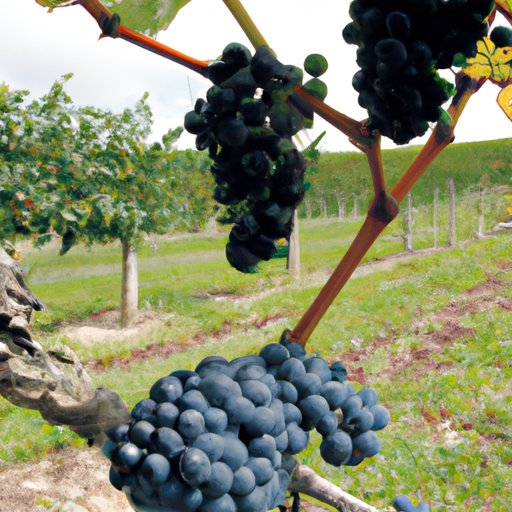Introduction
Grape culture is the practice of cultivating grapes to make wine and other related products. It has been around for centuries and is a major part of many different cultures around the world. In this article, we will explore the history, types of grapes, growing process, wine production, benefits and cultural significance of grape culture.
History of Grape Culture
The origins of grape culture can be traced back to ancient times in parts of Europe, Asia and Africa. According to research, the earliest evidence of grape cultivation was found in the Middle East, dating back to 6000 BC. From there, it spread throughout Europe, with the Greeks and Romans being some of the first to cultivate grapes for winemaking purposes. Over time, grape culture evolved and spread to other parts of the world, particularly in areas with suitable climates for growing grapes.
Types of Grapes
There are many different varieties of grapes used in grape culture, each with its own unique characteristics. Grapes are primarily grown in temperate regions, such as the Mediterranean, and can be divided into two main categories – table grapes, which are eaten fresh, and wine grapes, which are used to make wine. Different regions have their own distinct varieties of grapes, such as Cabernet Sauvignon in France, Malbec in Argentina, and Zinfandel in California.
Growing Grapes
Grape vines need specific conditions in order to thrive. The soil must be well-drained and have a pH level between 6 and 7.5. Sunlight is also important for grape growth, so the vineyard should be located in an area that gets plenty of sunlight. The amount of water needed by the vines depends on the climate, but they generally need to be watered regularly. Additionally, pruning is necessary to ensure the vines produce healthy grapes.
Wine Production
Once the grapes are harvested, they are pressed to extract the juice, which is then fermented to create wine. During the fermentation process, yeast is added to convert the sugar in the grapes into alcohol. After fermentation, the wine is aged in barrels or bottles to allow the flavors to develop. Finally, the wine is bottled and ready to be enjoyed.
Benefits of Grape Culture
Grape culture has numerous benefits, both for individuals and for societies as a whole. On an individual level, consuming moderate amounts of wine has been linked to improved heart health and reduced risk of certain types of cancer. Additionally, grape culture provides an economic benefit, as it creates jobs in the wine industry and contributes to the economy of areas where grapes are grown.
Cultural Significance
Grape culture has deep cultural significance in many parts of the world. In some cultures, grapes are seen as symbols of abundance and fertility. In others, they are associated with religious ceremonies and rituals. Wine is also often used in social gatherings, such as weddings and festivals, making it an important part of many cultures.
Tasting Different Wines
Tasting different wines is an art form that requires knowledge and experience. To properly taste a wine, there are several steps to follow. First, you should look at the color and clarity of the wine. Then, you should smell the wine, noting any aromas or scents. Finally, you should take a sip and savor the flavor, noting any nuances or complexities. Additionally, different wines pair better with certain foods, so it’s important to understand how to properly match them.
Conclusion
In conclusion, grape culture is a practice that has been around for centuries and is a major part of many different cultures. We have explored the history, types of grapes, growing process, wine production, benefits and cultural significance of grape culture. We have also discussed the art of tasting different wines and pairing them with food. From its health benefits to its cultural significance, grape culture is an important part of our lives.
(Note: Is this article not meeting your expectations? Do you have knowledge or insights to share? Unlock new opportunities and expand your reach by joining our authors team. Click Registration to join us and share your expertise with our readers.)
